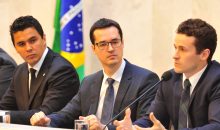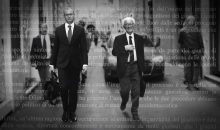Brazil must stop attacks against Lula da Silva’s lawyers, says UN special rapporteur

The UN special rapporteur on the independence of judges and lawyers criticized this Wednesday the harassment against the lawyers who defend Brazil’s former president Luiz Inácio Lula da Silva.
In a statement, Diego García-Sayán urged the country’s administration to assure its courts treat every citizen who presents themselves before them equally.
Lawyers Roberto Teixeira and Cristiano Zanin Martins defend Lula da Silva in the case known as Car Wash. Both professionals were hit by search and seizure operations authorized against their offices by a federal judge. Martins’ home was also a target, as well as the offices of other lawyers and law firms related to the case.
“Lawyers must not be attacked because they acted in the best interests of their clients”, the expert stressed. He has also recalled that everyone has the right to be represented.
Besides, he pointed out that lawyers must not be identified with their clients, nor with the causes their clients face proceedings for.
“I’m alarmed by the seeming strategy of some prosecutors and judges to harass lawyers just because they were doing their jobs, especially when they defend politicians”, the rapporteur said.
The way in which police conducted the searches, with the presence of journalists notified beforehand “seems like it is a part of a strategy to discredit lawyers before their peers, clients and the public in general”, he added.
Legal actions and accounts freezing
On the same day the search and seizure operations took place, a Car Wash prosecutor filed charges against Martins and Teixeira. The following day, the judge who issued the orders, Marcelo Bretas, freezed the lawyers’ and their firms’ bank accounts. The Federal Supreme Court is currently evaluating whether the search and seizure proceedings were legal.
García-Sayán urged the Brazilian authorities to “adopt all proper measures to ensure that the lawyers are able to do their job in an environment free of harassment, constraints, persecutions or inadequate meddling”.
The expert has also stressed the necessity for the judges to be impartial and mentioned the alleged connections between judge Bretas and political authorities, among them president Jair Bolsonaro.
Besides, he pointed out that on September 17, a federal regional court decided for 12 votes against 1 that the “public support” the judge shows for the current Brazilian president is inconsistent with his professional obligations. García-Sayán has also informed that the Brazilian Bar Association filed a disciplinary proceeding against the judge due to his relationship with the president.
“Judges cannot place themselves in situations in which their independence or impartiality may be questioned. It’s essential the judges avoid any political activity that may compromise their independence or risk their impartiality so as to keep the public’s trust in the judiciary system”, the special rapporteur highlighted. Moreover, he stated that impartiality is crucial to the overall functioning of judiciary branches.
García-Sayán had his concerns known in a letter sent to Brazil’s administration, which responded that the document was forwarded to the competent authorities.
Special Rapporteurs are part of the Special Procedures of the UN Human Rights Council. The Special Procedures, the biggest organ formed by independent UN Human Rights system experts, is how the set of investigation and monitoring independent mechanisms established by the Council to face concrete situations in countries or worldwide thematic issues is known. They work on a voluntary basis; they are not UN staff and do not receive a salary for their work. They are independent of any government or organization and work on an individual basis.
UN News | Revision: Mauricio Pupo



